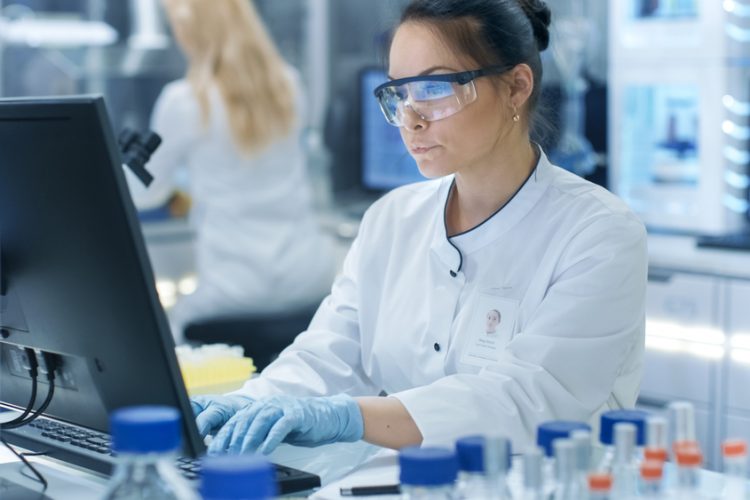Free to use COVID-19 Protein Portal launched for researchers in UK
Posted: 13 May 2020 | Victoria Rees (Drug Target Review) | No comments yet
The COVID-19 Protein Portal, established by UKRI and Wellcome, will allow scientists in the UK to access protein reagents needed for research.


UK Research and Innovation (UKRI) and Wellcome have launched a new initiative that will allow UK scientists to access protein reagents needed for critical research relating to SARS-CoV-2, free of charge from a consortium of leading protein production laboratories.
In response to the need for COVID-19 therapeutics, vaccines and diagnostics, many scientists are investigating the fundamental biology of SARS-CoV-2. According to the institutes, reliable protein reagents are crucial to such research, but can be challenging and time consuming to produce, especially under restricted working conditions.
As such, Wellcome and UKRI have brought together a consortium of leading centres of protein engineering and production to launch the COVID-19 Protein Portal.
Professor Fiona Watt, Executive Chair of the Medical Research Council (MRC), said: “The COVID-19 Protein Portal brings together the expertise of leaders in protein engineering and production throughout the UK, including colleagues in MRC-funded Institutes and Units. These researchers have very quickly developed high-quality robust research reagents, now being shared through the Portal. This consortium is an ideal demonstration of collaboration and coordination across the research community, aiming to accelerate progress towards treatment of COVID-19.”
“Researchers around the world are working at an unprecedented pace to deepen our understanding of COVID-19 and develop vaccines, treatments and tests against it. By collaborating across borders and openly sharing research and resources, we can learn more about the virus and help to bring this pandemic to an end,” said Dr Michael Dunn, Wellcome’s Head of Genetics and Molecular Science.
The COVID-19 Protein Portal contains a searchable database of reagents, including viral proteins, human proteins and antibodies relevant for SARS-CoV-2 biology. Each reagent is annotated with key information, including sequence, origin and SDS-page results.
The institutes say that researchers select the proteins they require from the database and submit their request with a short research proposal. All requests will be subject to rapid peer review, to enable the COVID-19 Protein Production Consortium (CPPC) to co-ordinate and prioritise reagent allocation based on scientific merit and the urgency of the request.
Once approved, a request will be allocated to one of the CPPC’s expert protein production laboratories, all of whom are committed to providing high-quality reagents as quickly as possible.
In the spirit of open science, recipient labs will be required to provide feedback to the CPPC on their results and to share important outcomes with the scientific community.
Related topics
Big Data, Disease research, Informatics, Protein, Proteomics, Research & Development
Related conditions
Coronavirus, Covid-19
Related organisations
COVID-19 Protein Production Consortium (CPPC), Medical Research Council (MRC), UK Research and Innovation (UKRI), Wellcome
Related people
Dr Michael Dunn, Professor Fiona Watt



